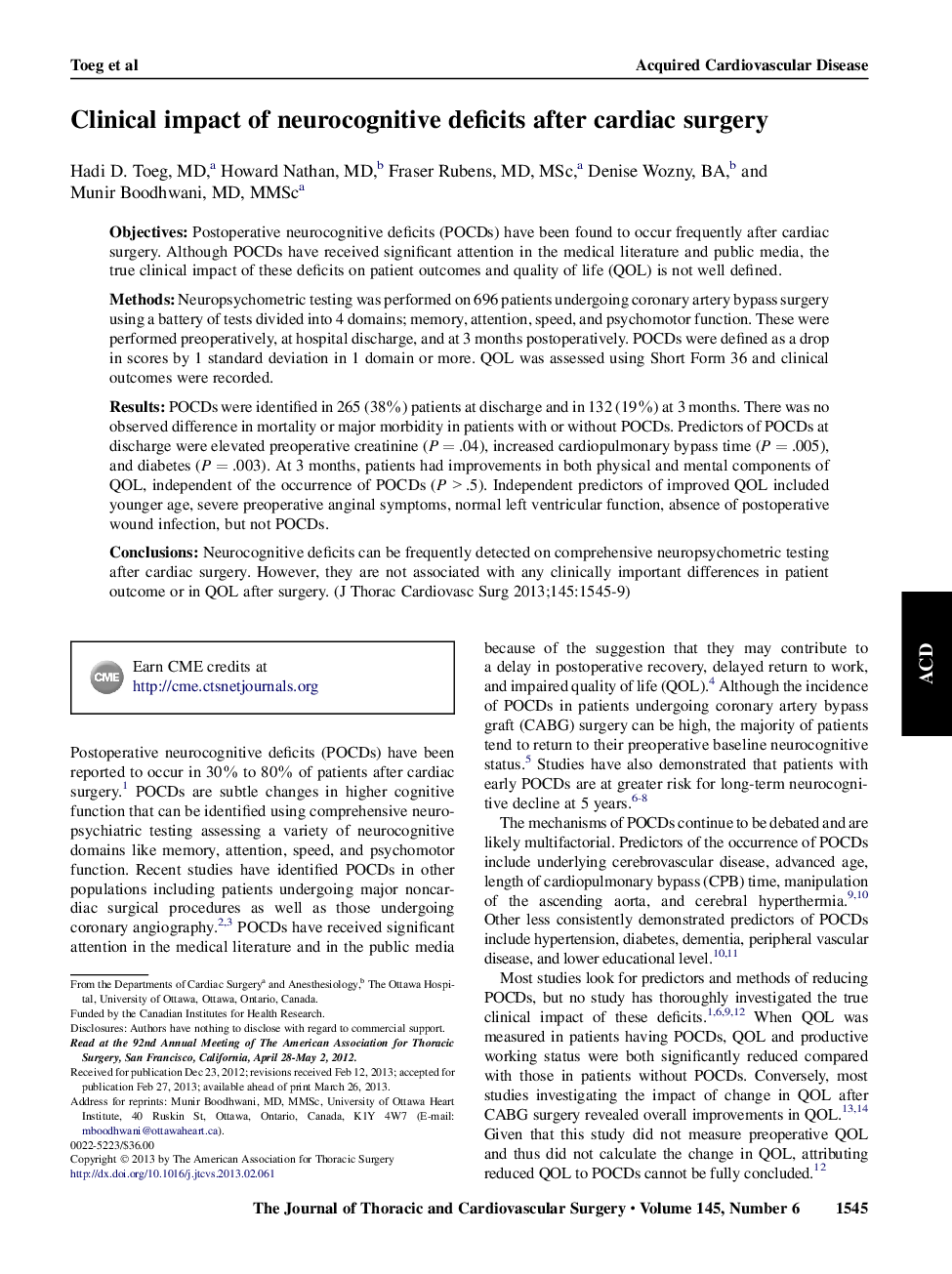| Article ID | Journal | Published Year | Pages | File Type |
|---|---|---|---|---|
| 2981204 | The Journal of Thoracic and Cardiovascular Surgery | 2013 | 5 Pages |
ObjectivesPostoperative neurocognitive deficits (POCDs) have been found to occur frequently after cardiac surgery. Although POCDs have received significant attention in the medical literature and public media, the true clinical impact of these deficits on patient outcomes and quality of life (QOL) is not well defined.MethodsNeuropsychometric testing was performed on 696 patients undergoing coronary artery bypass surgery using a battery of tests divided into 4 domains; memory, attention, speed, and psychomotor function. These were performed preoperatively, at hospital discharge, and at 3 months postoperatively. POCDs were defined as a drop in scores by 1 standard deviation in 1 domain or more. QOL was assessed using Short Form 36 and clinical outcomes were recorded.ResultsPOCDs were identified in 265 (38%) patients at discharge and in 132 (19%) at 3 months. There was no observed difference in mortality or major morbidity in patients with or without POCDs. Predictors of POCDs at discharge were elevated preoperative creatinine (P = .04), increased cardiopulmonary bypass time (P = .005), and diabetes (P = .003). At 3 months, patients had improvements in both physical and mental components of QOL, independent of the occurrence of POCDs (P > .5). Independent predictors of improved QOL included younger age, severe preoperative anginal symptoms, normal left ventricular function, absence of postoperative wound infection, but not POCDs.ConclusionsNeurocognitive deficits can be frequently detected on comprehensive neuropsychometric testing after cardiac surgery. However, they are not associated with any clinically important differences in patient outcome or in QOL after surgery.
